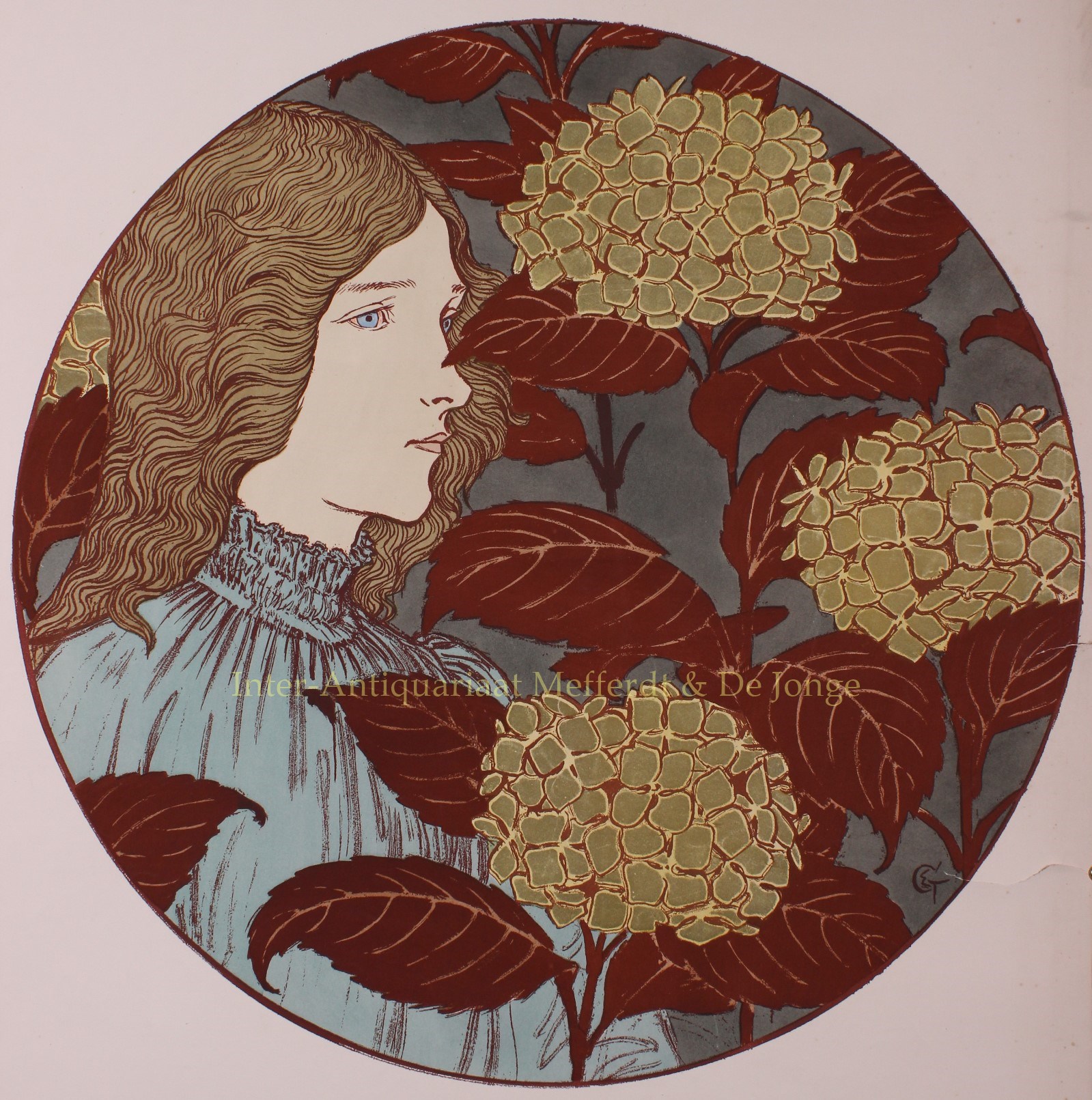“Froideur” [coldness], lithograph designed by Eugène Grasset in 1897, published by G. de Malherbe. Size: Ø 68,5 cm. From the series Dix Estampes Decoratives (caracteres de femmes, fleurs emblematiques) published in an edition 750.
Eugène Samuel Grasset (1841 –1917) was a Franco-Swiss decorative artist who worked in Paris, France in a variety of creative design fields during the Belle Époque. He is considered a pioneer in Art Nouveau design.
He was raised in an artistic environment as the son of a cabinet designer/maker and sculptor. He studied drawing under François Bocion (1828–1890) and went to Zürich in 1861 to study architecture. He became an admirer of Japanese art, which influenced some of his designs.
Between 1869 and 1870, Grasset worked as a painter and sculptor in Lausanne. He moved to Paris in 1871 where he designed furniture, fabrics and tapestries as well as ceramics and jewellery. His decorative fine art pieces were crafted from ivory, gold and other precious materials in unique combinations and his creations are considered a cornerstone of Art Nouveau motifs and patterns.
In 1877 Eugène Grasset turned to graphic design, producing income-generating products such as postcards and eventually postage stamps for both France and Switzerland. However, it was poster art that quickly became his forte. Some of his works became part of the Maîtres de l’Affiche.
Grasset spent much of his latter years teaching in various schools across Paris. Many of his students went on to become eminent artist themselves, unsurprisingly, a lot of them within the Art Nouveau movement. His versatility, instincts and ability not only influenced those whom he had taught, but also prominent artists like Alphonse Mucha, and left a stirring mark on the Arts and artists that followed.
Prijs: Euro 1.850,- (Incl. frame)


